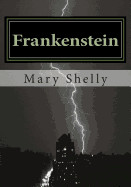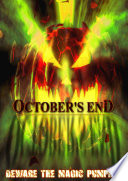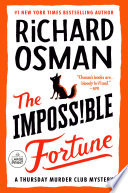Best Romance Novels | Francis Scott Fitzgerald, Jane Austen, Emily Brontë, Charles Dickens, Charlotte Brontë, William Shakespeare, Victor Hugo, Margaret Mitchell, Leo Tolstoy, David Herbert Lawrence, Gustave Flaubert, Thomas Hardy, Henry Rider Haggard, Ivan Sergeyevich Turgenev, E.M Forster
A romance novel is a type of novel and genre fiction which places its primary focus on the relationship and love between two persons, and usually has an emotionally satisfying and optimistic ending.
This book is a special collection of twenty best romantic novels which have achieved high success in our world since the days of William Shakespeare. This collection saves you time and money you could have spent searching for each best romance novel separately.
Here they are:
A Midsummer Night's Dream by William Shakespeare
A Midsummer Night's Dream takes place in Athens. Theseus, the Duke of Athens, is planning his marriage with Hippolyta, and as a result he is a planning a large festival. Egeus enters, followed by his daughter Hermia, her beloved Lysander, and her suitor Demetrius. Egeus tells Theseus that Hermia refuses to marry Demetrius, wanting instead to marry Lysander. He asks for the right to punish Hermia with death if she refuses to obey.
A Room with a View by Edward Morgan Forster
Lucy Honeychurch, a young upper middle class woman, visits Italy under the charge of her older cousin Charlotte. At their pension, or guesthouse, in Florence, they are given rooms that look into the courtyard rather than out over the river Arno. Mr. Emerson, a fellow guest, generously offers them the rooms belonging to himself and his son George. Although Charlotte is offended by Mr. Emerson's lack of tact and propriety, she finally does agree to the switch. Lucy is an avid young pianist. Mr. Beebe, watches her passionate playing and predicts that someday she will live her life with as much gusto as she plays the piano.
A Tale of Two Cities by Charles Dickens
The year is 1775, and social ills plague both France and England. Jerry Cruncher, an odd-job man who works for Tellson’s Bank, stops the Dover mail-coach with an urgent message for Jarvis Lorry. The message instructs Lorry to wait at Dover for a young woman, and Lorry responds with the cryptic words, “Recalled to Life.” At Dover, Lorry is met by Lucie Manette, a young orphan whose father, a once-eminent doctor whom she supposed dead, has been discovered in France. Lorry escorts Lucie to Paris, where they meet Defarge, a former servant of Doctor Manette, who has kept Manette safe in a garret. Driven mad by eighteen years in the Bastille, Manette spends all of his time making shoes, a hobby he learned while in prison. Lorry assures Lucie that her love and devotion can recall her father to life, and indeed they do.
Anna Karenina by Leo Tolstoy
The Oblonsky family of Moscow is torn apart by adultery. Dolly Oblonskaya has caught her husband, Stiva, having an affair with their children’s former governess, and threatens to leave him. Stiva is somewhat remorseful but mostly dazed and uncomprehending. Stiva’s sister, Anna Karenina, wife of the St. Petersburg government official Karenin, arrives at the Oblonskys’ to mediate. Eventually, Anna is able to bring Stiva and Dolly to a reconciliation.
Cleopatra by Henry Rider Haggard
In the recesses of the desolate Libyan mountains that lie behind the temple and city of Abydus, the supposed burying place of the holy Osiris, a tomb was recently discovered, among the contents of which were the papyrus rolls whereupon this history is written. The tomb itself is spacious, but otherwise remarkable only for the depth of the shaft which descends vertically from the rock-hewn cave that once served as the mortuary chapel for the friends and relatives of the departed, to the coffin-chamber beneath. This shaft is no less than eighty-nine feet in depth. The chamber at its foot was found to contain three coffins only, though it is large enough for many more. Two of these, which in all probability enclosed the bodies of the High Priest, Amenemhat, and of his wife, father and mother of Harmachis, the hero of this history, the shameless Arabs who discovered them there and then broke up.
Emma by Jane Austen
Although convinced that she herself will never marry, Emma Woodhouse, a precocious twenty-year-old resident of the village of Highbury, imagines herself to be naturally gifted in conjuring love matches. After self-declared success at matchmaking between her governess and Mr. Weston, a village widower, Emma takes it upon herself to find an eligible match for her new friend, Harriet Smith. Though Harriet’s parentage is unknown, Emma is convinced that Harriet deserves to be a gentleman’s wife and sets her friend’s sights on Mr. Elton, the village vicar. Meanwhile, Emma persuades Harriet to reject the proposal of Robert Martin, a well-to-do farmer for whom Harriet clearly has feelings.
First Love by Ivan Sergeyevich Turgenev
The story takes place in 1833 in Moscow, the main character – Volodya – sixteen years old, he lives with his parents at the dacha and is preparing to enter the university. Soon, the family of Princess Zasekin enters the poor outbuilding in the neighborhood. Volodya accidentally sees the princess and very much wants to meet her. The next day his mother receives an illiterate letter from Princess Zasekina asking for her protection. Mother sends Princess Volodya with an oral invitation to her house. There Volodya gets acquainted with the princess – Zinaida Alexandrovna, who is five years older than him. Princess immediately calls him to her room to untangle the wool, coquetting with him, but quickly loses interest in him. On the same day Princess Zasekina visits his mother and makes an extremely unfavorable impression on her. However, despite this, mother invites her along with her daughter for dinner. During dinner, the princess sniffs snufflily, fidgets in a chair, turns, complains of poverty and talks about her endless bills, and the princess, on the contrary, is majestic – she talks all her dinner with
Gone with the Wind by Margaret Mitchell
It is the spring of 1861. Scarlett O’Hara, a pretty Southern belle, lives on Tara, a large plantation in Georgia. She concerns herself only with her numerous suitors and her desire to marry Ashley Wilkes. One day she hears that Ashley is engaged to Melanie Hamilton, his frail, plain cousin from Atlanta. At a barbecue at the Wilkes plantation the next day, Scarlett confesses her feelings to Ashley. He tells her that he does love her but that he is marrying Melanie because she is similar to him, whereas he and Scarlett are very different. Scarlett slaps Ashley and he leaves the room. Suddenly Scarlett realizes that she is not alone. Rhett Butler, a scandalous but dashing adventurer, has been watching the whole scene, and he compliments Scarlett on being unladylike.
Great Expectations by Charles Dickens
Pip, a young orphan living with his sister and her husband in the marshes of Kent, sits in a cemetery one evening looking at his parents’ tombstones. Suddenly, an escaped convict springs up from behind a tombstone, grabs Pip, and orders him to bring him food and a file for his leg irons. Pip obeys, but the fearsome convict is soon captured anyway. The convict protects Pip by claiming to have stolen the items himself.
Jane Eyre by Charlotte Bronte
Jane Eyre is a young orphan being raised by Mrs. Reed, her cruel, wealthy aunt. A servant named Bessie provides Jane with some of the few kindnesses she receives, telling her stories and singing songs to her. One day, as punishment for fighting with her bullying cousin John Reed, Jane’s aunt imprisons Jane in the red-room, the room in which Jane’s Uncle Reed died. While locked in, Jane, believing that she sees her uncle’s ghost, screams and faints. She wakes to find herself in the care of Bessie and the kindly apothecary Mr. Lloyd, who suggests to Mrs. Reed that Jane be sent away to school. To Jane’s delight, Mrs. Reed concurs.
Madame Bovary by Gustave Flaubert
Madame Bovary begins when Charles Bovary is a young boy, unable to fit in at his new school and ridiculed by his new classmates. As a child, and later when he grows into a young man, Charles is mediocre and dull. He fails his first medical exam and only barely manages to become a second-rate country doctor. His mother marries him off to a widow who dies soon afterward, leaving Charles much less money than he expected.
Pride and Prejudice by Jane Austen
The news that a wealthy young gentleman named Charles Bingley has rented the manor of Netherfield Park causes a great stir in the nearby village of Longbourn, especially in the Bennet household. The Bennets have five unmarried daughters—from oldest to youngest, Jane, Elizabeth, Mary, Kitty, and Lydia—and Mrs. Bennet is desperate to see them all married. After Mr. Bennet pays a social visit to Mr. Bingley, the Bennets attend a ball at which Mr. Bingley is present. He is taken with Jane and spends much of the evening dancing with her. His close friend, Mr. Darcy, is less pleased with the evening and haughtily refuses to dance with Elizabeth, which makes everyone view him as arrogant and obnoxious.
Romeo and Juliet by William Shakespeare
In the streets of Verona another brawl breaks out between the servants of the feuding noble families of Capulet and Montague. Benvolio, a Montague, tries to stop the fighting, but is himself embroiled when the rash Capulet, Tybalt, arrives on the scene. After citizens outraged by the constant violence beat back the warring factions, Prince Escalus, the ruler of Verona, attempts to prevent any further conflicts between the families by decreeing death for any individual who disturbs the peace in the future.
Sense and Sensibility by Jane Austen
When Mr. Henry Dashwood dies, leaving all his money to his first wife's son John Dashwood, his second wife and her three daughters are left with no permanent home and very little income. Mrs. Dashwood and her daughters (Elinor, Marianne, and Margaret) are invited to stay with their distant relations, the Middletons, at Barton Park. Elinor is sad to leave their home at Norland because she has become closely attached to Edward Ferrars, the brother-in-law of her half-brother John. However, once at Barton Park, Elinor and Marianne discover many new acquaintances, including the retired officer and bachelor Colonel Brandon, and the gallant and impetuous John Willoughby, who rescues Marianne after she twists her ankle running down the hills of Barton in the rain.
Tess of the d'Ubervilles by Thomas Hardy
The poor peddler John Durbeyfield is stunned to learn that he is the descendent of an ancient noble family, the d’Urbervilles. Meanwhile, Tess, his eldest daughter, joins the other village girls in the May Day dance, where Tess briefly exchanges glances with a young man. Mr. Durbeyfield and his wife decide to send Tess to the d’Urberville mansion, where they hope Mrs. d’Urberville will make Tess’s fortune. In reality, Mrs. d’Urberville is no relation to Tess at all: her husband, the merchant Simon Stokes, simply changed his name to d’Urberville after he retired. But Tess does not know this fact, and when the lascivious Alec d’Urberville, Mrs. d’Urberville’s son, procures Tess a job tending fowls on the d’Urberville estate, Tess has no choice but to accept, since she blames herself for an accident involving the family’s horse, its only means of income.
The Great Gatsby by Francis Scott Fitzgerald
Nick Carraway, a young man from Minnesota, moves to New York in the summer of 1922 to learn about the bond business. He rents a house in the West Egg district of Long Island, a wealthy but unfashionable area populated by the new rich, a group who have made their fortunes too recently to have established social connections and who are prone to garish displays of wealth. Nick’s next-door neighbor in West Egg is a mysterious man named Jay Gatsby, who lives in a gigantic Gothic mansion and throws extravagant parties every Saturday night.
The Hunchback of Notre Dame by Victor Hugo
During the 1482 Festival of Fools in Paris, Quasimodo, the hunchback of Notre Dame, is elected the Pope of Fools for being the ugliest person in Paris. He is hoisted on a throne and paraded around Paris by the jeering mob. Pierre Gringoire, a struggling poet and philosopher, tries unsuccessfully to get the crowd to watch his play instead of the parade. Archdeacon Claude Frollo appears and stops the parade and orders Quasimodo back to Notre Dame with him. Looking for something to eat, Gringoire admires the graceful beauty of La Esmerelda, a gypsy street dancer, and decides to follow her home. After rounding a corner, she is suddenly attacked by Quasimodo and Frollo. Gringoire rushes to help her but is knocked out by Quasimodo as Frollo runs away. The King's Archers, led by Phoebus de Chateaupers arrive just in time and capture the hunchback. Later that night, a group of beggars and thieves are about to hang Gringoire when La Esmerelda comes forward and offers to save his life by "marrying" him for four years only.
The Virgin and the Gipsy by David Herbert Lawrence
The tale relates the story of two sisters, daughters of an Anglican vicar, who return from finishing school overseas to a drab, lifeless rectory in the East Midlands, not long after the World War I. Their mother has run off with another man, a scandal that is not talked about by the family, especially the girls' father, who was deeply humiliated and only remembers his wife as she was when they first met many years before.
Their new home is dominated by a blind and selfish grandmother called "Mater" and her mean-spirited, poisonous daughter Aunt Cissie. The two girls, Yvette and Lucille, risk being suffocated by the life they now lead at the rectory. In particular, Yvette's desperation is compounded by the fact that she has "borrowed" a little money from a charity fund that her family manages. Her relationship with both her father and aunt suffer: She sees her father as a mean-spirited and cowardly person for the first time when he reacts savagely to her petty crime.
Women in love by David Herbert Lawrence
Ursula and Gudrun Brangwen are sisters living in The Midlands in England in the 1910s. Ursula is a schoolteacher, Gudrun a painter. They meet two men who live nearby, school inspector Rupert Birkin and Gerald Crich, heir to a coal-mine, and the four become friends. Ursula and Birkin begin a romantic friendship, while Gudrun and Gerald eventually begin a love affair.
All four are deeply concerned with questions of society, politics, and the relationship between men and women. At a party at Gerald's country house, Gerald's sister Diana drowns. Gudrun becomes the teacher and mentor of Gerald's youngest sister. Soon, Gerald's coal-mine-owning father dies as well, after a long illness. After the funeral, Gerald goes to Gudrun's house and spends the night with her while her parents sleep in another room.
Wuthering Heights by Emily Bronte
In the late winter months of 1801, a man named Lockwood rents a manor house called Thrushcross Grange in the isolated moor country of England. Here, he meets his dour landlord, Heathcliff, a wealthy man who lives in the ancient manor of Wuthering Heights, four miles away from the Grange. In this wild, stormy countryside, Lockwood asks his housekeeper, Nelly Dean, to tell him the story of Heathcliff and the strange denizens of Wuthering Heights. Nelly consents, and Lockwood writes down his recollections of her tale in his diary; these written recollections form the main part of Wuthering Heights.
A well-formatted, easy-to-read book, suitable for any e-reader, tablet or computer. The reader will go from one novel to another one, one chapter to another one as quick as possible. Each novel is preceded by its author's detailed biography and a summary















